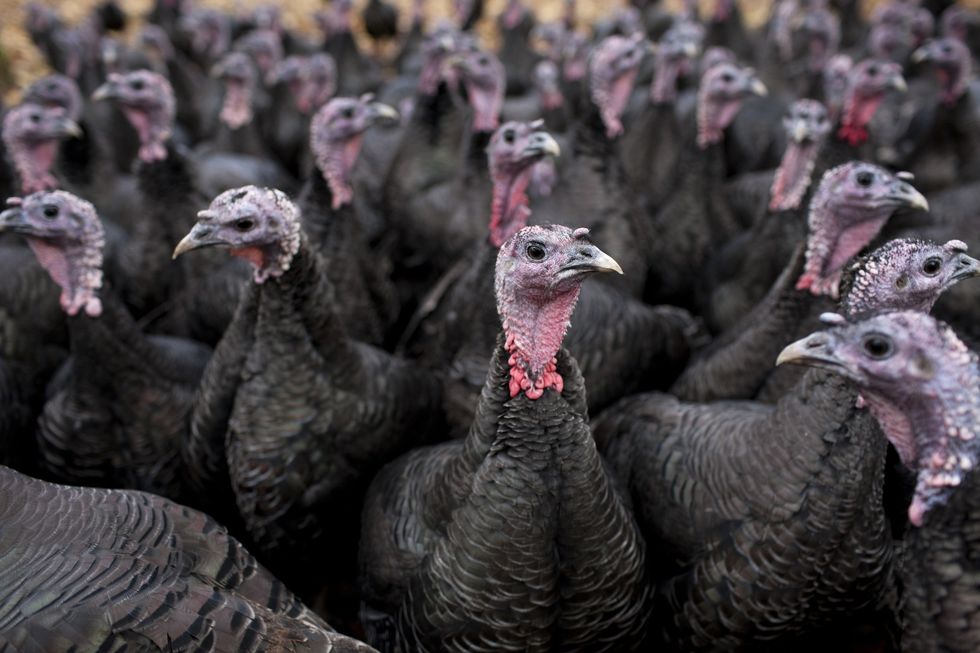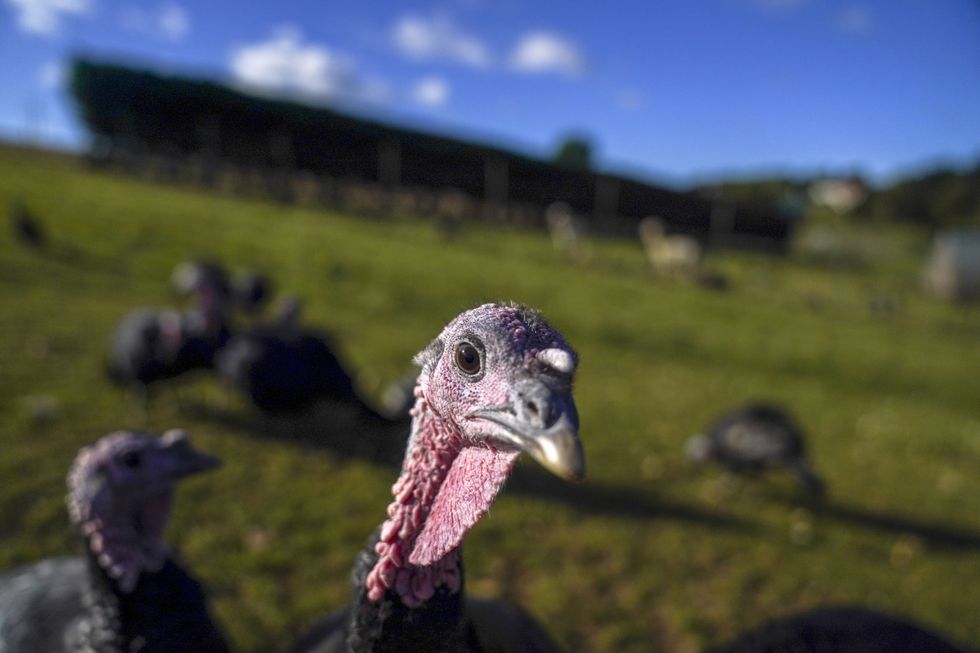George Bunn
Guest Reporter
Turkey farms across Britain have been hit by an outbreak of bird flu, with tens of thousands of birds culled just days before Christmas.
Highly pathogenic avian influenza has been detected at 11 sites since the start of November, marking the first outbreak in captive animals since February.
The virus has primarily affected farms in Norfolk, where eight cases have been confirmed, including multiple turkey farms.
Officials are now considering implementing a mandatory housing order to curb the spread of the virus, which is almost 100 per cent fatal to birds.

The outbreak is believed to have been triggered by recent stormy weather, which increased the risk of transmission from wild birds to captive animals.
Eight of the infected sites are in Norfolk, comprising five turkey farms, a duck farm, a chicken farm and a non-commercial site housing emus and aviary birds.
Central Norfolk is the hardest hit region, with three different 3km bird flu protection zones overlapping in a single area 15 miles west of Norwich.
Two cases have been confirmed in Yorkshire, while a small holding near St Ives in Cornwall marks the final known case.
LATEST DEVELOPMENTS

All birds at the 11 affected sites have been humanely culled, with owners receiving compensation for their losses.
Experts predict more cases in the coming weeks, particularly following the recent impact of Storm Darragh with its strong winds and high precipitation.
From midday on Monday, December 23, all poultry and captive birds in Norfolk, Suffolk, Lincolnshire and parts of Yorkshire will be required to stay indoors under new government measures. The order comes in addition to the Avian Influenza Prevention Zone restrictions announced on December 13.
UK Chief Veterinary Officer Christine Middlemiss said: "There continues to be a growing number of bird flu cases on commercial farms and in backyard birds across East Riding of Yorkshire, City of Kingston Upon Hull, Lincolnshire, Norfolk and Suffolk."
"We have taken action to try and prevent the further spread of disease and urge bird keepers to comply with the new housing measures," she added.
Bird keepers must maintain strict biosecurity measures, including disinfecting clothing and equipment, and minimising contact between captive and wild birds.
The Department for Environment Food and Rural Affairs has upgraded the risk of bird flu in wild birds to "very high", though health officials maintain the risk to human health remains very low. The Food Standards Agency has confirmed that properly cooked poultry products, including eggs, are safe to eat.
Most Christmas turkeys have already been prepared for the dinner table, though some affected birds may have been destined for Christmas meals.
Find Out More...
Highly pathogenic avian influenza has been detected at 11 sites since the start of November, marking the first outbreak in captive animals since February.
The virus has primarily affected farms in Norfolk, where eight cases have been confirmed, including multiple turkey farms.
Officials are now considering implementing a mandatory housing order to curb the spread of the virus, which is almost 100 per cent fatal to birds.

The outbreak is believed to have been triggered by recent stormy weather, which increased the risk of transmission from wild birds to captive animals.
Eight of the infected sites are in Norfolk, comprising five turkey farms, a duck farm, a chicken farm and a non-commercial site housing emus and aviary birds.
Central Norfolk is the hardest hit region, with three different 3km bird flu protection zones overlapping in a single area 15 miles west of Norwich.
Two cases have been confirmed in Yorkshire, while a small holding near St Ives in Cornwall marks the final known case.
LATEST DEVELOPMENTS
- British schoolgirl killed in horrific snorkelling incident
- Two teenagers who targeted a Jewish community in spate of vile antisemitic attacks sentenced
- 'Reform on the rise!' 1,000 new young people join Reform UK in less than 48 hours

All birds at the 11 affected sites have been humanely culled, with owners receiving compensation for their losses.
Experts predict more cases in the coming weeks, particularly following the recent impact of Storm Darragh with its strong winds and high precipitation.
From midday on Monday, December 23, all poultry and captive birds in Norfolk, Suffolk, Lincolnshire and parts of Yorkshire will be required to stay indoors under new government measures. The order comes in addition to the Avian Influenza Prevention Zone restrictions announced on December 13.
UK Chief Veterinary Officer Christine Middlemiss said: "There continues to be a growing number of bird flu cases on commercial farms and in backyard birds across East Riding of Yorkshire, City of Kingston Upon Hull, Lincolnshire, Norfolk and Suffolk."
"We have taken action to try and prevent the further spread of disease and urge bird keepers to comply with the new housing measures," she added.
Bird keepers must maintain strict biosecurity measures, including disinfecting clothing and equipment, and minimising contact between captive and wild birds.
The Department for Environment Food and Rural Affairs has upgraded the risk of bird flu in wild birds to "very high", though health officials maintain the risk to human health remains very low. The Food Standards Agency has confirmed that properly cooked poultry products, including eggs, are safe to eat.
Most Christmas turkeys have already been prepared for the dinner table, though some affected birds may have been destined for Christmas meals.
Find Out More...